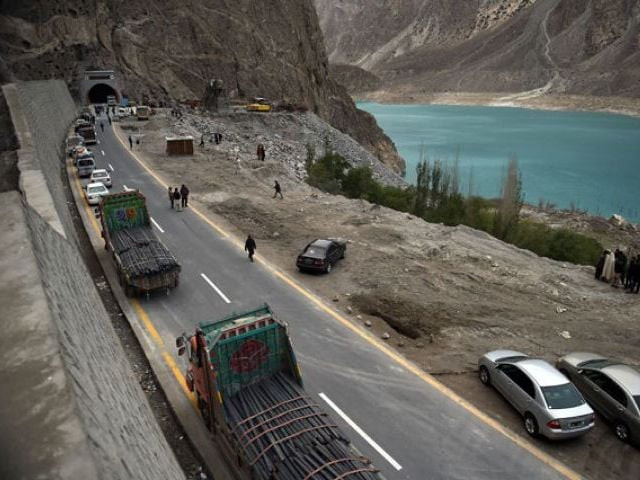China says new Silk Road not about military ambitions
China's ambitions have caused nervousness in some countries, particularly India

PHOTO: AFP
The new Silk Road, formally known as the Belt and Road initiative in China, is President Xi Jinping's signature policy to expand links between Asia, Africa and Europe underpinned by billions of dollars in infrastructure investment.
China pledges $124 billion for new Silk Road as champion of globalisation
At a summit in Beijing this month, Xi pledged $124 billion for the plan, promising to forge a path of peace, inclusiveness and free trade.
But China's ambitions have caused nervousness in some countries, particularly India and in some European capitals, which suspect Beijing of using the plan to promote Chinese influence globally, pointing to investments in ports in places such as Pakistan that could one day be used by China's navy.
Asked whether Chinese Belt and Road investments in ports in Greece, Pakistan and Sri Lanka had a covert military intention, Chinese Defence Ministry spokesman Ren Guoqiang said such speculation was ‘groundless’.
The new Silk Road is about cooperation and trade, he told a regular monthly news briefing.
"The Belt and Road initiative has no military or geostrategic intent. China is not seeking the right to guide global affairs, or spheres of influence, and will not interfere in the internal affairs of other countries."
Still, China has been building a military base in the Horn of Africa country of Djibouti that will be its first overseas naval base, though officially described as a logistics facility.
India skips China’s Silk Road summit, warns of ‘unsustainable’ debt
Djibouti's position on the Indian Ocean's northwestern edge has fuelled worries in India that it could join China's "string of pearls", or military alliances and assets ringing the south Asian nation, including Bangladesh, Myanmar and Sri Lanka.



















COMMENTS
Comments are moderated and generally will be posted if they are on-topic and not abusive.
For more information, please see our Comments FAQ